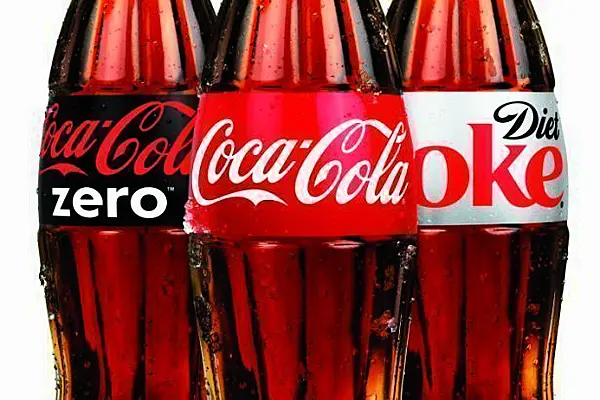Swiss-based soft drink bottler Coca-Cola HBC's first-half operating profit has missed analyst expectations after being dragged down by higher costs, sluggish growth in its established markets and an unseasonable cool start to the European summer.
HBC, which produces Coca-Cola drinks under franchise for 28 mostly European markets and is one of the world's biggest soft-drinks bottlers, reported a 4.9% dip in operating profit to €288.9 million, missing a company supplied average estimate of €319.8 million.
Net sales revenue rose 3.8% to €3.35 billion for the six months ended on June 28, beating a forecast of €3.34 billion.
Restructuring undertaken in 2019 cost about €30 million. The company, which bought Serbian confectionary firm Bambi in June, also reported acquisition-related costs.
"We are pleased with this solid first half given the challenging combination of tough comparators and unseasonably cold and wet weather," CEO Zoran Bogdanovic said.
With the euro zone economy slowing, the company reported a rise of just 0.4% in volumes in its established markets - a category including Austria, Cyprus, Greece, Italy, Northern Ireland, Republic of Ireland and Switzerland.
That was outstripped by greater demand in Nigeria and emerging markets in eastern Europe, which got a boost at the end of June from the first days of one of the hottest summers on record.
Developing economies served by HBC across eastern Europe and Africa are still expected to grow several times faster than their developed neighbours in western Europe.
Rival Bottler Shines
Rival Coca-Cola European Partners (CCEP) separately reported higher profit, but joined HBC in citing rainy weather in the second quarter as a negative factor.
CCEP chief financial officer Nik Jhangiani said that the company also saw positive initial reactions to Coca-Cola Co's new Coke Energy drink, a month after the global drinks maker won an arbitration case with energy drink maker Monster Beverage to sell its own version globally.
Coca-Cola holds a 19% stake in Monster Beverage.
Jhangiani said consumers liked the taste of Coke Energy because it married the traditional taste of coke with inputs from energy drinks, and said did not cannibalise sales of Monster's energy beverages as it was supported with a "very strong and die hard fan base."
Coca-Cola Co's general business model is to sell syrup to a network of franchise bottlers in different markets who do the heavy lifting of bottling and delivering the drinks.
News by Reuters, edited by Hospitality Ireland. Click subscribe to sign up for the Hospitality Ireland print edition.









